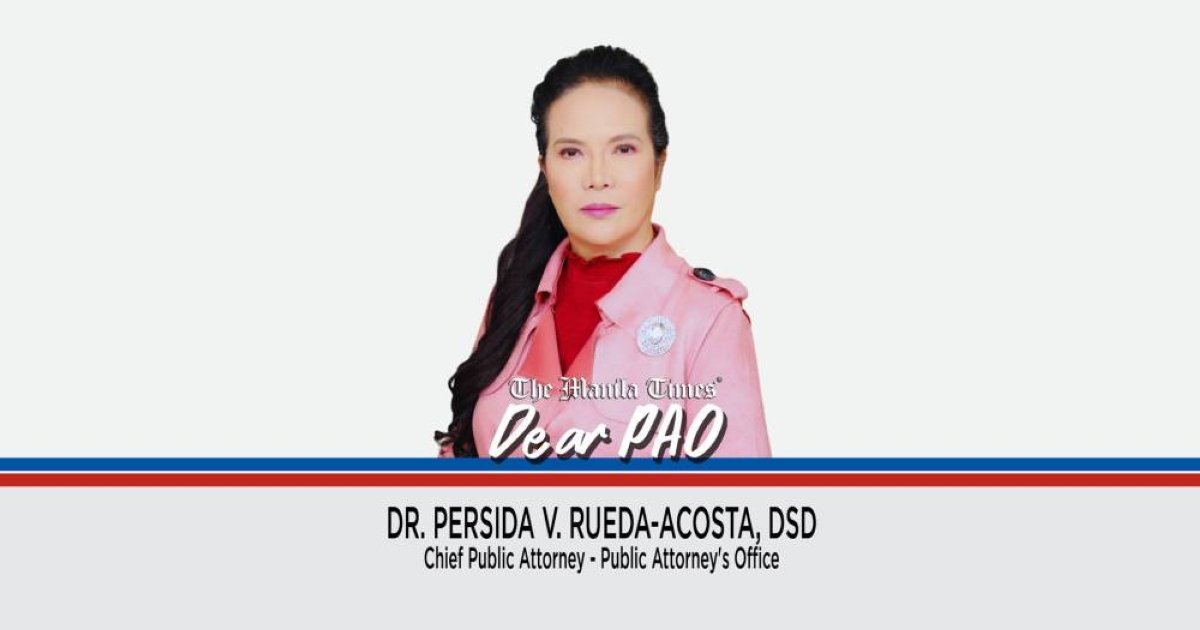Dear PAO,
My cousin was implicated in a crime of carnapping. During the pendency of his criminal case, my cousin died from cancer. What are the effects of his death on the liabilities that may be imposed against him arising from the crime charged?
Faye
Dear Faye,

When an accused dies prior to his final conviction, his criminal liability and civil liability arising from the crime are extinguished, but not the civil liability arising from other sources of obligation.
The Supreme Court, through Associate Justice Estela Perlas-Bernabe, discussed in the case of People vs. Anderson, GR 225607, March 28, 2022, the following:
“Under prevailing law and jurisprudence, Anderson’s death prior to his final conviction by the Court should have resulted in the dismissal of the criminal case against him. Article 89 (1) of the Revised Penal Code provides that criminal liability is totally extinguished by the death of the accused, to wit:
“Article 89. How criminal liability is totally extinguished. – Criminal liability is totally extinguished:
“1. By the death of the convict, as to the personal penalties; and as to pecuniary penalties, liability therefor is extinguished only when the death of the offender occurs before final judgment; xxx
“Likewise, the civil action instituted for the recovery of the civil liability ex delicto is also ipso facto extinguished, as it is grounded on the criminal action. The rationale behind this rule is that upon an accused-appellant’s death pending appeal of his conviction, the criminal action is deemed extinguished inasmuch as there is no longer a defendant to stand as the accused.
“Nonetheless, the Court clarified in People v. Culas that in such an instance, the accused’s civil liability in connection with his acts against the victim may be based on sources other than delicts; in which case, the victim may file a separate civil action against the accused’s estate, as may be warranted by law and procedural rules” (Emphasis supplied)
As provided in the aforementioned law and jurisprudence, the death of the accused before the final judgment in his criminal case will terminate his criminal liability inasmuch as there is no longer a defendant to stand as the accused. In relation thereto, the civil liability arising from the crime charged is likewise extinguished.
This does not mean, however, that all other civil liabilities which arise from other sources of obligation, such as law, contracts, quasi-contracts, and quasi-delicts will also be extinguished. All the other civil liabilities which arise from other sources of obligation will survive and may be proceeded against the estate of the accused.
We hope that we were able to answer your queries. This advice is based solely on the facts you have narrated and our appreciation of the same. Our opinion may vary when other facts are changed or elaborated on.
Editor’s note: Dear PAO is a daily column of the Public Attorney’s Office. Questions for Chief Acosta may be sent to [email protected]










